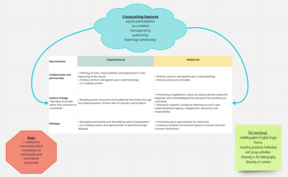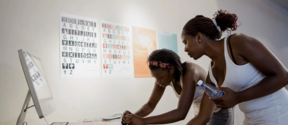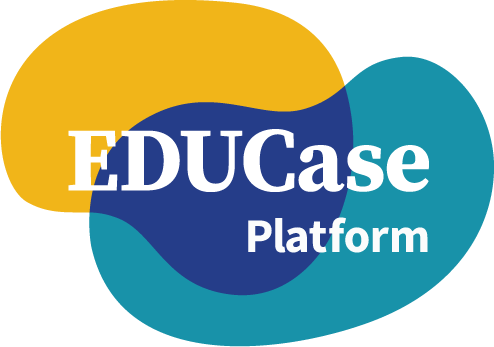A Global Learning Space: Empowering Students for Responsible Global Engagement

The initiative is a continuation of prior successful partnerships, between the University of Oulu, UniPID, GINTL, University of Namibia, and now extends to Una Europa. The initiative integrates research-based methods to enhance South-North academic partnerships through dialogue and co-creation. Key aspects include fostering inclusive and participatory pedagogical approaches, thus nurturing ownership, and mutual learning across diverse educational landscapes.
The pioneering course for this initiative is the “Global Education Development” (GED) course offered within the UniPID Virtual Studies program. The course serves as an experiential platform to pilot these transformative educational practices. Through the course, students and teachers are encouraged to collaborate closely to achieve shared educational goals, thus embedding the concept of students as partners and everyday internationalization in virtual learning environments. This approach ensures that students’ voices play a pivotal role in defining effective partnership practices in education.
The GED course was redesigned from its previous setting to not only involve but also be shaped by students' contributions, particularly in defining what constitutes effective partnerships in virtual learning. In this light, three interns from the collaborating universities were selected to share their unique experiences and insights gained from participating in the course. Their reflections highlight the challenges and accomplishments of incorporating diverse perspectives and participatory methods in virtual classrooms. Marianne Reuse, a master's student at the University of Oulu, serving as a student consultant in the initiative, noted several challenges, including technological barriers and various backgrounds, which sometimes hindered equitable participation. Addressing these issues head-on, the team explored innovative solutions like using flexible digital tools such as Padlet to foster interactive and inclusive learning environments.
According to Kelly Brito, the project coordinator of the initiative, the Global Learning Space project is more than just an educational program, it is a movement toward creating sustainable, responsible, and equitable global partnerships. As it continues to unfold, the lessons learned from this initiative, and the practices developed in previous international collaborative programs will influence the broader landscape of global education. In addition, one of the outputs of this project is to create a toolkit that will foster participation, communication, and engagement and serve as a resource hub for educators, administrators, and course developers navigating the complexities of virtual learning environments. The toolkit will offer guidelines and best practices derived from both empirical research and real-world experiences, equipping stakeholders with actionable strategies for designing and implementing virtual courses that prioritize diversity and inclusivity. The toolkit will be shared and published in the fall of 2024.
As the initiative comes to an end, the practices and lessons learned promise to influence not only the participating institutions but also the broader landscape of global education. This transformative project is set to empower students and educators to engage responsibly and innovatively in global contexts in online settings.
This initiative stands as a testament to the potential of collaborative innovation in achieving a more inclusive and sustainable world. Such initiatives will pioneer a future where education transcends borders and where every student is empowered to engage responsibly in global contexts. Such modalities can potentially reshape the educational framework within Finnish higher education institutions (HEIs) and beyond, serving as a model for ethical collaboration and internationalization.
More information about the project is available here.
Read more news
Breaking the Darkness: Tackling energy crisis in Lesotho
Lesotho, often called the Kingdom in the Sky due to its high altitude, faces a severe energy crisis, with nearly half of its population lacking access to reliable electricity.
Transforming Interdisciplinary Education: Sustainable Global Technologies (SGT) Across Four Continents
The true impact of our actions often unfolds over time, as demonstrated by the students at the SGT FAIR’24 on May 22. Their work showcased how a single student challenge can drive significant change.
LUT University and Aalto University export virtual education to Africa
Lappeenranta-Lahti University of Technology (LUT) and Aalto University have joined forces to export virtual education to the continent.
